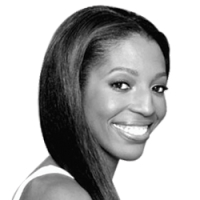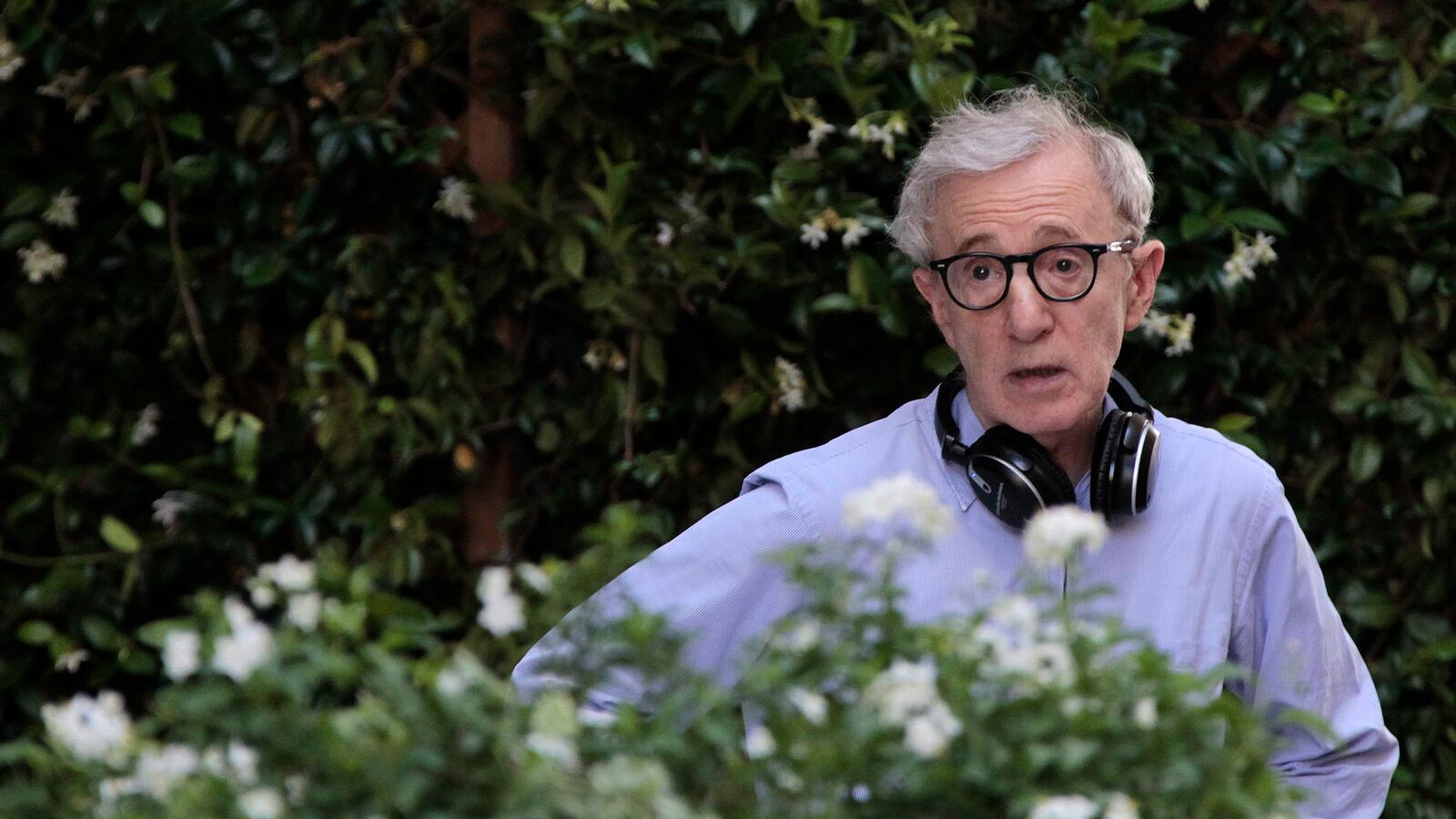Barbara Walters sparked a controversy of her own this week when she decided to take sides in the increasingly explosive controversy surrounding Dylan Farrow’s allegations that her filmmaker father, Woody Allen, molested her. On Tuesday’s episode of The View, Walters said, “I have rarely seen a father as sensitive, as loving and as caring as Woody is—and Soon-Yi—to these two girls. I don’t know about Dylan. I can only tell you what I have seen now.”

But Walters may have unintentionally raised more questions about Allen’s parental qualifications. After all, Allen’s two daughters with Soon-Yi are adopted, just like Soon-Yi had been before her relationship with Allen began, and just like Dylan Farrow, the daughter who, as an adult, maintains he molested her. Though the allegations against Allen have never been resolved in a court of law and the Oscar-winning director has strongly denied them, it does raise a number of serious questions. Perhaps chief among them: Is it odd that someone accused of molesting one girl was able to adopt two others?
According to adoption experts, allegations of prior bad behavior are a gray area in determining a prospective adoptive family’s fitness. Adoptions are primarily governed by state, not federal, statutes, with only a few requirements being universal across the nation. (Fingerprinting, for example.) All adoptions require some form of state and federal criminal background check. Beyond that, each state is permitted to determine what specific acts are deal-breakers. “I’ve seen cases where a 35-year-old guy adopting was convicted of marijuana [possession] at age 21, and he’ll usually be able to adopt. Then I’ve seen people with two or three DUIs not approved,” said Donald Cofsky, president of the American Academy of Adoption Attorneys. On the other hand, he noted, he has seen recovering alcoholics with several years of sobriety cleared for adoption.
Cofsky explained that convictions for violent crimes, particularly anything involving a child, are automatic deal-breakers in many states, including New Jersey, where he works most extensively. But accusations alone are rarely enough to deter an adoption. “I hate to tell you the number of times in the middle of divorces one of the spouses makes allegations about another regarding domestic violence or child abuse. If it is not substantiated, that is not enough. But it is something an agency should certainly look into if they become aware of it.”
But other experts said that without a criminal conviction, it is unlikely an adoption agency would become aware of an abuse allegation. “We don’t google our adoptive families,” Jeanne McGee of the adoption agency Adoptions From the Heart said in an interview. “If we have some suspicion for any reason that they may be lying, we might dig a little deeper. But there are multiple clearances and criminal clearances that they fill out in every state they’ve lived in the last 10 years, and if they have been convicted of something, it will come up on those. But if they’re just being accused of something, we can’t judge them on something they have not been convicted of.”
What about someone like Michael Jackson, who was accused of child abuse multiple times without ever being convicted? “We’ve never had a case like that, so it’s probably something we’d have to discuss with the whole team to figure out,” McGee said. “That would not be a yes or no. We would have to factor in multiple things, and our personal interaction with that person and the conversations we’ve had with them. We wouldn’t base our decision just on the fact that somebody’s been accused of something but nothing has been proven. You’re innocent until proven guilty.”
Adoption lawyer Laurie Goldheim, the incoming president of the American Academy of Adoption Attorneys, was more doubtful that someone could withstand multiple abuse allegations, even if none were ever substantiated. She noted that in New York state, private adoptions require judicial sign-off. “It’s to the discretion of the judge. If there are multiple allegations but none of them are founded, there’s something weird going on. Who has multiple allegations of abuse?”
Of Woody Allen’s abuse allegations, McGee said, “It might be a flag, but it’s not something that we can deny them on. We would have to factor that into other things and other conversations that we’ve had with the family to decide whether we’re approving them or not.”
Cofsky also speculated that Allen’s allegations may have raised an eyebrow, but he said, “I would have hoped they would have done the appropriate investigation to look into it.” Cofsky, who was unaware Allen had adopted two children with Soon-Yi, said questioning whether the agency got it right is like “second-guessing trials.” But he sensed Michael Jackson would have given agencies more pause. “Can I predict what they would do? No. Is it likely that they would place [a child with him]? They’d have to do an exhaustive investigation. To me it is doubtful an agency is going to place knowing that stuff is circulating out there.”
He pointed out that one way that agencies might do due diligence regarding unsubstantiated allegations of abuse is to require the parent accused of such abuse to undergo psychological evaluation and testing. The bottom line is agencies almost always err on the side of caution. “One reason is that if something goes bad and you have these accusations floating around that they’re aware of, the agency can lose its license, or if their investigation is found to be deemed negligent they can get sued.”
Cofsky is speaking from firsthand experience. He represented an adoption agency sued for allowing a young Russian girl to be adopted by a pedophile. The case made international headlines, was featured on Oprah, and resulted in congressional hearings, as well as a financial settlement. Cofsky explained that Matthew Mancuso, the adoptive father, looked perfect on paper. It turned out he had forged a letter from his biological daughter raving about his parenting skills, but had plenty of sterling recommendations from adults. But the agency still erred, namely by not executing visits to the home in the months following the adoption as required. “That was one of the checks and balances that should have been followed and they didn’t.”
But Cofsky noted that in examining abuse cases that make it to court, “Almost all of them are biological parents. How many parents [are] accused of abuse and neglect of a child they have adopted? Almost none.” He also alleged that adopted children in those high-profile abuse cases have often been placed by the state. One prime example is the notorious Collingswood case, in which two New Jersey foster parents-turned-adoptive parents later had their adoptive children removed for starving them.
History is littered with cases of celebrities and the wealthy being given preferential treatment in the adoption process, perhaps most infamously when Georgia Tann operated as Hollywood’s preferred baby broker, helping stars like Joan Crawford become parents through methods that were legally questionable. But Cofsky said that is hardly the case today. Though he has not worked with any celebrities in the nearly 2,000 adoption cases he has worked on, he has worked with agencies that have placed children with big names like Angelina Jolie, and says he has never seen any special treatment. Seeming to confirm this, in an interview with The Daily Mail , Alex Kingston, best known for starring on ER, lamented her inability to be approved as an adoptive parent. “People assume that celebrities can adopt babies as easily as Angelina Jolie, but they don’t hear about the ones who aren’t successful.”





